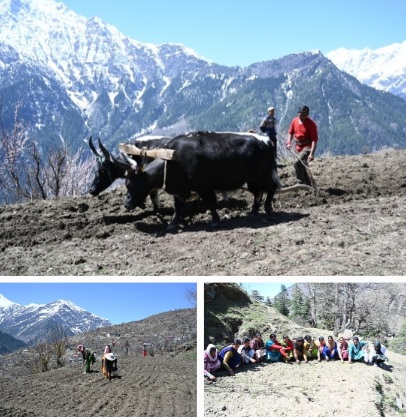Natural Farming Push in Pangi: A Shot at Sustainable Livelihoods
Killar (Pangi), April 26:
In a move that could redefine agriculture in Himachal’s remote tribal belt, Chief Minister Thakur Sukhvinder Singh Sukhu has declared Pangi valley as the state's first Natural Farming Sub-Division. For a region where farming has long been organic by tradition, this official stamp brings new hope for sustainable incomes and market access.
Spread across 19 panchayats, Pangi’s 25,000-strong population depends heavily on farming and horticulture.
But traditional methods, though chemical-free, have struggled against erratic weather and crop diseases. The shift to structured natural farming — backed by training, FPOs, and market linkages — aims to plug that gap.
Farmers like Ratto Devi from Bhatwas village say practices like ‘ghanjivamrit’ sprays have already boosted yields without chemical inputs.
Savitri Devi from Punto points out that preparations like 'jivamrit' are made from easily available home resources, slashing input costs to almost zero.
Natural farming leans heavily on the indigenous Indian cow, whose dung is rich in beneficial microbes, vital for soil health.
Local farmer Laldei adds that concoctions like sour buttermilk sprays and ‘agni astra’ naturally fend off pests — cutting dependence on costly pesticides.
Since 2022, natural farming in Pangi has spread to over 400 hectares, with 2,100 farmers trained.
A dedicated FPO is now helping farmers sell apples at Rs. 75/kg and fetch fair prices for kidney beans, potatoes, and peas — a huge leap for a region often left out of mainstream markets.
The CM’s latest announcements — including a Rs. 60/kg support price for naturally grown barley — signal serious intent.
But success will hinge on building robust infrastructure and ensuring steady market access, especially given Pangi’s fragile road connectivity.





